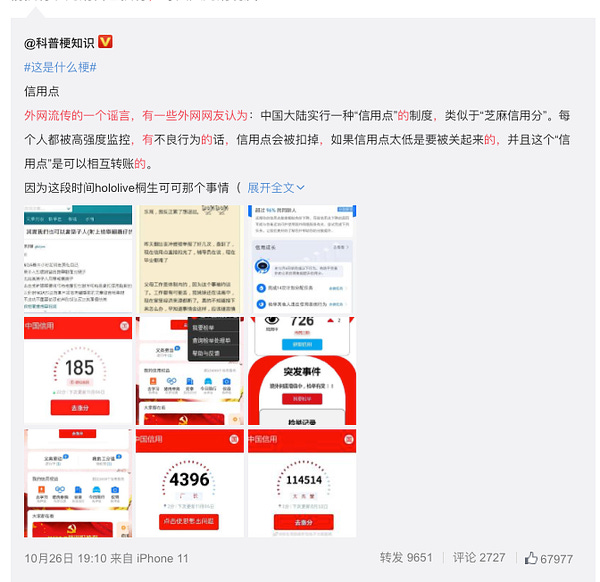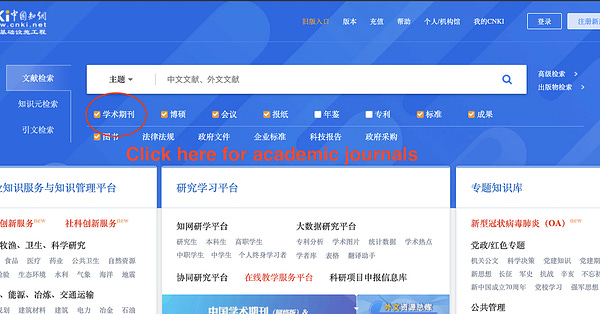Biden's China Policy + Tweets of the Week
David F. Gordon (Former State Department Director of Policy Planning) on Challenges and Constraints Around Tech, Trade, Congress, Allies, Ant Financial, and Human Rights
First off, a confession: I’ve wanted to work in government on foreign policy since probably middle school? But the last time I was hunting around for a position towards the end of the Obama administration, I felt a little awkward about it. Sure, I was smart and competent and had read a lot, but young people like that are a dime a dozen in D.C.
Sports analytics has this concept called value over replacement player (VORP), which attempts to get at how much any one player would contribute to the team over the average talent at their position. Back then, my foreign policy staffer VORP score wasn’t all that impressive.
Fast forward four years later, and thanks to my experience working in tech in China and time making the podcast and newsletter, that has changed. There aren’t many people in my age cohort who have a deep understanding of both China tech issues and instruments of U.S. power. Given the importance of this issue set and the contribution I think I could make, I feel comfortable making the hard sell now.
If you or any of your friends are looking for a special assistant or policy advisor in, say, State at EB or EAP, Commerce in BIS, Treasury at International Affairs, OSTP, or anywhere else my background might be put to good use, do keep me in mind.
What will Biden’s China policy look like?
To discuss, I recorded a ChinaTalk podcast episode earlier this week with David F. Gordon, a senior adviser at the International Institute for Strategic Studies (IISS). Previously he was my boss at the Eurasia Group, director of policy planning under Condoleezza Rice at the State Department, and acting chairman of the National Intelligence Council, among many other positions in a multi-decade career in the IC.
Jordan: January 2021—what are U.S.-China relations?
David: There’s going to be a lot of overlap between a Trump administration and a Biden administration. I think that, as is always the case in changes in administration, the tone often changes, the language often changes, but generally there is a lot of continuity. I think this time around there’s specifically going to be a lot of continuity on China.
In the United States, particularly in the last three years, there has been a growing sense that a tougher China policy should be on the agenda. So while there was a lot of skepticism especially among Democrat foreign-policy types around the trade war, there has been broad support among Democratic foreign-policy analysts on the pushback on tech.
I think the pushback on tech will definitely continue. Where will it be located, who will take the lead in all of this, what of the details might be different … it’s too soon to know. But I do think that while the Trump administration put a lot of energy into building an international coalition on tech, it did so in typical Trumpian ways of, “You better be with me or we’ll screw you on this.” So I actually think that the latent potential for building up a broad coalition on tech, particularly on 5G, is quite strong.
Jordan: The relative hard-line-ness of a Biden administration vis-à-vis China is something people have spent a lot of time thinking about. We have the Ely Ratners of the world, and my think tank the Center for a New American Security (CNAS), who has been perhaps most explicit for the longest time talking about the “China Challenge” and America rising to it … though perhaps when you read between the lines of public statements, it’s a little bit less openly confrontational than it appears. When you look at maybe a Michèle Flournoy who has written that maybe what we’re doing with regards to China’s technology is too aggressive.
So the message is not entirely united: the way to look at where all these chips are going to fall is to look at the external forces, and also to look at what the president thinks. Maybe, David, if you could take us into those a few aspects: where public opinion, Congress, and Biden himself are on these issues.
David: It’s a great question. Given that the Dems did not do very well down-ticket, and that I think the odds of the Dems taking the two Georgia Senate seats in the January 5th by-election are really pretty low (they may get one of them, but I would be very surprised if they got both), I think there’s almost a 90 percent likelihood that we are looking at a Republican Senate. In that circumstance, I think one of the themes that will be attractive to a Biden administration both in policy and political terms is emphasizing standing up to China, and that’s that doesn’t just have to do with tech, but tech will be at the very top of this. This is because Biden could very well task many of his domestic programs—infrastructure development, rebuilding America, all of this for which he is going to need Republican support. If you cast all of this as part of making America sufficiently strong at home to take on China, that will probably get some traction for him.
Jordan: Kurt Campbell at a think tank event the other day said you won’t have to wait too long before you start seeing pre-K being framed as an anti-China initiative.
David: Exactly! I love it, and I completely agree with the sentiment behind that. I think the politics of this definitely leads to an increasing emphasis on this general anti-China ethos. Structurally I would really highlight that a Biden presidency with a close Senate, but one that’s still in Republican hands, really leads to a strong political incentive for him to go down that path—I think that’s going to be one really important factor. The second thing here is that you know if you’re Biden looking at a Trump foreign policy, there’s a lot that you’re going to set yourself against, particularly with alliances, climate change, and probably even trade to a substantial degree … but there will also be a couple of things you’re going to want to build on.
One of these things is the success that Trump had in putting together this coalition around tech, targeting Huawei but focused in general on 5G. So I do think that these are the themes that will be built upon. People are important, and it’s pretty unlikely that Kurt Campbell is going to rejoin government, but it’s extremely likely that Ely Ratner will get something very important, and it almost certainly will have a lot to do with China.
If you’re really looking for an early signal that the Biden administration is going to be substantially different from the Trump administration on China technology, I think looking at whether Ely Ratner is in the administration in a significant China role will be one of your important signals.
Trade Policy
Jordan: One of the things you raised was trade policy, which is going to be a really interesting thing for the Democrats to navigate.
David: Biden has talked about unilaterally lifting tariffs. I don’t think we’re going to see much of that vis-à-vis China. He may do some unilateral lifting of tariffs with U.S. allies. One of the big themes that’ll be different between the Biden administration and the Trump administration is I think Biden goes back to the older policy whereby you give America’s allies a little more leeway in trade negotiations. Trump completely moved away from that, but the China piece is an interesting one.
I don’t think he’s going to unilaterally give up very much—if anything—on tariffs. On the other hand, I think he will want to engage China in a new set of negotiations on the trade side.
So I would suspect that China is going to be his priority for trade negotiations—it’s not going to be Europe, it’s not going to be the U.K., it’s not going to be TPP, it is going to be China.
The challenge here is that, frankly, what he’s going to be looking in most cases is going to be similar to what the Trump administration was looking for in the comprehensive trade negotiations between Lighthizer and Liu He. The one big difference is going to be that Trump himself was a tariff guy. Biden is not a tariff guy. So I think that the Biden administration will be willing to put much more on the table in terms of things that could look good for China than would the Trump administration.
In this sense, the prospects are somewhat higher, but if you go back to the comprehensive negotiations that fell apart in the spring of 2019, the failure of the Chinese to be able to negotiate successfully, that is something that the Biden people are going to be very aware of. So this is not going to be an easy negotiation, but I do believe that this is one of two or three areas where the Biden administration is really going to make a very serious push at doing something to offset geopolitical tensions and technology tension.
Jordan: You mentioned you were a bit bearish on some people saying, “We’re going to do multilateral everything, and that includes trade deals.” Why don’t you think that’s necessarily in the cards?
David: The Biden administration’s priorities are going to be 90 percent domestic, and they’re not going to be around trade. To the extent that there are around trade, they will be around the ongoing trade issues that were put in play by the Trump administration on China.
Jordan: That makes sense. It’s also just the politics on trade are really hard.
David: Politics on trade are always hard. And they’re not going to be easier. And that’s why I think Biden will try to do something with China, the domestic politics of which might be easier.
Human Rights
Jordan: It’s interesting because the congressional dynamic historically has been the executive has wanted to have friendlier relations than Congress was comfortable with vis-à-vis China and other human-rights-offender-type countries.
David: One of the interesting questions, Jordan, is the degree to which human rights issues are going to come into play for a Biden administration. The immediate one here is going to be a bear for Biden, and that’s Hong Kong. I just don’t see what instruments are available to the U.S. to meaningfully shift the dynamics on Hong Kong, dynamics which are leading to a quite rapid incorporation of Hong Kong directly into the Chinese polity, and eventually the substantial loss of Hong Kong’s status as a financial center and as the entrepot to China.
Jordan: This also bears on the asylum stuff; it’s hard to make that work if people can’t leave Hong Kong.
David: Exactly. Here is where you’re getting an obvious example of the reconnaissance state. I’m sure China has eyes and ears on all of the key activists and is just not going to let them leave. They’re not going to be able to get to any embassy to seek asylum.
Jordan: The 2022 Olympics is going to be a really interesting moment and potential forcing function for all of this. Two or three senators already starting to talk about it, and I think as it gets closer, a lot of E.U. countries might begin movements to pull out.
David: I think this is going to be quite different from 2008. I was in government in 2008, and there was pressure on President Bush not to go and all of this, but he said, “This is such an important event for the Chinese people that the Chinese people would take it as an insult if I didn’t go, and that would hurt the United States.” And I think that was the right decision to have made. The China of 2008, pre–Xi Jinping, is a pretty different China.
Jordan: Also, it’s the winter Olympics, whatever, it’s not as big a deal … the NHL’s not even gonna be there …
Appetite From Allies for Increased Cooperation
Jordan: Anyway, repairing allies seems to be the theme. I’m curious to what extent you think that is even possible, what they should be doing, and how you would gauge the appetite of allied countries around the world for renewing what relationships used to look like.
David: I think the appetite in Asia is very strong. In Asia, and particularly countries like South Korea, which had a really rough time with the Trump administration, are very keen to improve relations with the United States. I think in Japan, the enthusiasm around the U.S. alliance is probably stronger than it’s ever been.
And then there are countries in Asia where China has dramatically misplayed its hand, and they’re more active now and much more forcefully engaged and interested in alliance relationships. In that category, the two key countries are Australia and India. China’s move in the Himalayas has led to this dramatic and quite rapid shift in attitudes in India towards China, and conversely in attitudes towards much closer ties with the U.S. and other Asian–U.S. allies.
Jordan: David, the app I was working on in China got banned in India, tragically. And that’s just the tip of the iceberg.
David: India has moved really rapidly to seek much closer security ties with the U.S. The longstanding Indian opposition to formal alliances remains in place, but the quad—this informal alliance relationship among India, Japan, Australia, and the U.S.—I think the quad really gets built up, and the Indians here are critical. They are major military power, and they’re a military power that has historically always seen itself as an independent actor.
The Indian Navy has long been ahead of the curve here seeing its long-term relationships with the West and with U.S. allies, but I think the whole of the Indian security establishment is now making that shift, which is really significant. Looking at defense spending in Asia, if you add India to all of the other U.S. allies in Asia, the joint defense spending there is pretty parallel to what China spends on defense. So this notion of the inability to build an effective balancing defensive coalition is wrong. We can and will build that, particularly if the U.S. remains committed to being an active player.
The issue that’s going to come to the fore sooner rather than later, and which will be the big challenge in Asia, is going to be Taiwan. Because I do believe that China is getting much more serious about the need for a military action to take Taiwan, I think the fact that they have been willing to move so far, so fast in Hong Kong signals that they’re really giving up on the theme of “one country, two systems.” When Deng Xiaoping articulated that concept, he was articulating it not just for Hong Kong, but also for Taiwan. The worry here is really about Taiwan—that will be the focal point. There’s no question that the U.S. will continue to put a priority on technologies that emphasize U.S. defense in the face of Chinese weaponry that is increasingly capable of interdicting a U.S. force that is moving from U.S. bases in the Pacific to engage more actively in a Taiwan defense.
Jordan: It’s a really hard question, and some of Michèlle Flournoy’s past writing has basically looked at the coming austerity which is likely to hit the defense department in the wake of a global pandemic as being a bit of a forcing function for these sorts of hard decisions, because the carrier hanging out in Honolulu is not going to do the trick.
David: The carrier hanging out in Honolulu is not going to do the trick. It’s quite interesting to me that the Marine Corps, which was really the element of the military that had gone the most all-in on counterinsurgency and counterterrorism engagements … the Marine Corps is now beginning to develop concepts to be the leading edge of a force that can be deployed in various parts of Asia as a counter to Chinese forces, and that’s a big change.
What Not to Learn From The Cold War
Jordan: You were in government back when we still had great power conflict, and have lived through the subsequent thirty years of something else, with counterinsurgency and all this stuff in the Middle East and South Asia. Now we see Congress, and the executive branch, and the IC, and the military, and the state department all trying to work their way back towards the sort of muscles that have really atrophied over the past thirty years. What do you think is important to keep in mind as we adjust out of the counterterrorism era and into this great power competition time?
David: The most important point here is that China isn’t the Soviet Union, and the U.S. relationship with China isn’t the U.S. relationship with the Soviet Union. Regarding “China isn’t the Soviet Union,” it’s that China is much more dynamic, much more engaged broadly and globally in all sorts of commercial endeavors, scientific endeavors, financial endeavors. The Soviet Union had its sphere of influence, but beyond its sphere of influence, it had very little in terms of relationships. So the U.S.-China relationship is also exceptionally deep, particularly on the economic side. Some decoupling on the technology side is both the right thing to do and doable, but broadly speaking, decoupling is not a strategy that is going to get us where we need to go with China. Recognizing those two key differences is going to be central to getting the China challenge right.
This is a very long-term challenge, but because of the more integrated nature of China’s relations with the rest of the world, and of U.S. relations with China, and because of the many really big, tough issues that face the world—from climate change to infectious diseases to migration—we really need to have China on board. With this in mind, the approach of isolating and decoupling is really not going to make a lot of sense. We are going to want to maintain the strengths we both have in terms of military technology and more general technology.
One thing that troubles me a lot about the U.S. debate around Chinese technology, and this is really prevalent in the newspapers and television, is the notion that China’s ahead of us on technology. Nothing could be further from the truth. They’re not a little behind; they’re substantially behind!
What’s also often overstated is the notion that with technology, we’re in something with very immediate and high stakes. On the other hand, this is the principal challenge of our time—being able to compete with China, but also avoiding a conflict with China. Both of those need to be the signposts here for the United States, and I’m struck by the advantage that the U.S. has (and I think will continue to have) over China in terms of its ability to work with other countries as partners. In contrast, China has nothing in its very long history of working effectively on a partnership basis. What we’ve seen even in the last year is a signal of how hard it is for China to do partnership relationships that are balanced.
Jordan: Coming back to something you spoke to earlier, how to find the golden mean between, on the one hand, being motivated enough to spend money on investing in science and technology, potentially hurting some factories in America because we need to be friends with our allies, and on the other hand not blowing it up into this 1962 Cold War mentality, where you throw away a lot of the mutually beneficial economic interaction between the U.S. and China. This is something I’m worried is impossible given our democracy and the dynamics at play, particularly in Congress when it comes to this sort of thing, and especially with all the McCarthyism-type stuff, which you’re seeing now at the fringes with the racial slurs and the attacks on the street. This could get much much much worse.
David: That is a legitimate concern. Can I say I’m confident we’re going to get this right. This is definitely not something that is going to be easy to do. It’s also something that doesn’t just depend on what we do, because it also depends on what China does, and what the Chinese leadership does, and that’s why I think that looking back not all that many years to the early days of president Xi Jinping’s rule, people in the West were optimistic about Xi Jinping, they thought he was dynamic, he was going to be a reformer, he believed in the private sector, all of this stuff … and in fact, he’s much more authoritarian, and he’s much more adventurous than China’s recent leaders.
Ant Financial and Xi’s Relationship With the Private Sector
Jordan: The Ant Financial thing was such a Putin move. It was, “Oh this guy is getting a little too big for his britches now.” It’s fascinating.
David: I’m glad that you raised this. In 2003 Putin began his move against the country’s richest businessman and most globally successful business, Mikhail Khodorkovsky and Yukos, and there are definitely shades of this in the move against Ant Financial. Twenty-five years later, there isn’t a single Russian company that has the global presence and the global reputation that Yukos had. Not only did Putin destroy Russia’s biggest and most promising company, there hasn’t begun to be a competitor.
It really raises this interesting tension. In 2015 and 2016, President Xi moved to severely limit the potential for all sorts of Chinese businesses to invest in the West and other parts of the world and to move money back to China. But at that point, he was promoting the growth of the big technology companies. Now, however, the big technology companies are huge players on their own.
If you’re thinking about a company whose international deployment and success would redound the most to China’s strategic benefit, I think Ant Financial might even be ahead of Huawei because they’re involved in payment systems.
China is very interested in high-tech payment systems, with which they can weaken the leverage of U.S. dominance of the formal financial system and formal financial instruments in the world. You would think taking Alipay global would be the way to do it, except it involves allowing a private company to get very big and very strong. It will be really interesting to see if there ever is an Ant IPO. If I had to place my money now, I don’t think it’ll ever happen.
Jordan: It’s a fascinating relationship Xi has with these people. I’m sure he’s not a particularly big fan of the new generation, but there’s also no one in the cohort younger than Jack Ma who is willing to do the sort of thing that he did, in terms of having the gumption to use Xi’s own words against him in that speech and do it in such a charismatic way. Jack Ma is one of the first billionaires to have spent time in the West, but a lot of the other billionaires have worked at Microsoft or gone to UC Berkeley to get their computer science master’s degree.
Maybe it’s a bit of a generational thing, and it’s also seeing enough people’s heads lopped off to understand that this is just not a game they’re interested in playing. To watch the demonstration effect of this will be fascinating.
How Biden Will Lead
Jordan: I want to come back to Biden as a person you’ve been watching for multiple decades. I’m curious if you could do a little reflection on him as a president, as a foreign policy thinker, and what sort of mindset does he take to this issue set?
David: I very much see Joe Biden as the right person for this time. He’s a very serious guy, he’s empathetic, he’s gone through very tough times, he is quite balanced, and I think significantly he is somebody who can both build the kind of domestic trust and domestic alliances that he will need. He will also be good at foreign policy and foreign affairs. Biden has been a better diplomat than a foreign policy thinker. I think that a lot of the ideas that he’s raised over the years haven’t been great—he was the one who wanted to divide Iraq into three separate countries, which would have created an absolutely disastrous situation in that part of the world. So I don’t think that his ideas are necessarily great, but his instincts are good.
He’s always had a very competent and high-quality staff, he has always led that staff to work effectively with others (he had really important bipartisan relationships in the Senate, most importantly with Senator John McCain), so I think that all of these are going to bode well for him as president.
The China issue is going to be the issue for him. There are going to be a lot of different interests in play here in his administration—I think the business community and the financial community will come in and really try to seek a lowering of tensions. He will want to do that, but then the question is, how do you do that while maintaining the focal point on technology. I think Biden will try to put together some form of multilateral public-private partnership on creating an alternative, or several alternatives, to Huawei on the 5G rollout.
I just thought it was unlikely that President Trump would create an administration that had the competence to do that, even though he was interested in doing it. So I’m reasonably optimistic about a Biden presidency, and he also will have to develop some kind of a relationship with Xi Jinping. That’s the wild card here.
Tweets of the Week

In reference to Zhao Lijian’s 14 beefs he had with the Aussies. Will be recording a show later today with the wonderful Yun Jiang on Australia-China relations, stay tuned to the ChinaTalk podcast feed!




Judd Blanchette has a great deep dive on the 70/30 verdict on Mao.


Thread






thread with lots of pretty pictures






